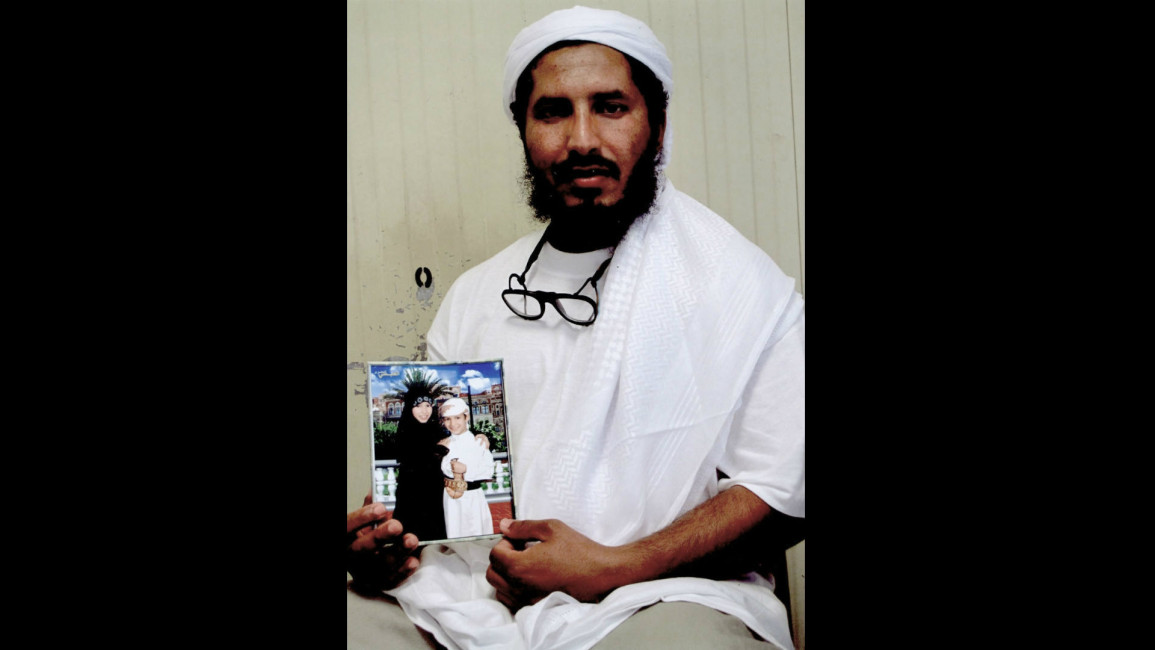Saudi becomes first Guantanamo Bay prisoner released under Trump
A Saudi inmate from Guantanamo Bay has arrived back in the kingdom after the Pentagon said it was transferring him to his homeland, the first such move under President Donald Trump and a U-turn on his previous pledges to not allow release any inmates back onto the "battlefield".
The widely expected transfer of Ahmed Haza al-Darbi, who pleaded guilty to helping plan a 2002 attack on a French oil tanker, was announced Wednesday and reduced the notorious jail's population to 40.
But news of the move came the same day as the Pentagon said Defence Secretary Jim Mattis had sent the White House guidance on how Guantanamo might again start receiving new inmates - an oft-stated goal of Trump.
Darbi, 43, entered a plea deal in February 2014 that saw him admit to planning, aiding and supporting an attack on the MV Limburg, which killed a Bulgarian sailor, injured a dozen and caused a large oil spill in the Gulf of Aden.
He was sentenced to 13 years in prison, starting from the date of the plea.
However, the deal included a provision that after four more years at Guantanamo, he could serve the remaining nine years of his term at a luxurious rehab centre in the Saudi capital Riyadh, where former extremists are given counselling and ideological detoxification.
Twitter Post
|
A security spokesman told Saudi Arabia's state news agency SPA that Darbi arrived back in the kingdom late on Wednesday evening.
His family had been informed of his return and arrangements were being made for him to meet them, the spokesman said, confirming that Darbi would now join a "rehabilitation programme".
Trump tweeted in January that there would be "no further releases from Gitmo", using the prison's acronym.
"These are extremely dangerous people and should not be allowed back onto the battlefield," he added.
Guantanamo has not received any new inmates since 2008, but on the campaign trail Trump vowed to load the facility with "bad dudes," and said it would be "fine" if US terror suspects were sent there for trial.
The detention of each Guantanamo detainee costs the American taxpayer $11m per year.
Trump in January signed an executive order reversing his predecessor Barack Obama's ultimately fruitless 2009 directive to shutter Guantanamo.
Mattis's recommendations to the White House provide "our warfighters guidance on nominating detainees for transfer to Guantanamo detention should that person present a continuing, significant threat to the security of the United States," Pentagon spokeswoman Commander Sarah Higgins said.
The Pentagon did not provide any additional details on the recommendations, and it was not clear what impact they would have.
History of torture
Any attempt to send new inmates to Guantanamo would likely run into a plethora of legal challenges.
"Given the history of torture, unlawful detention and complete lack of justice provided there, no new detainees should ever be transferred to Guantanamo," Daphne Eviatar, a director at Amnesty International USA, said in a statement.
Read more: Guantanamo reflects everything wrong with the War on Terror
Trump's January executive order gave Mattis and the heads of other agencies 90 days to recommend policies on wartime detainees and whether they should be sent to Guantanamo.
US military officials have been openly discussing the fate of Islamic State group detainees, mainly foreign fighters, held by US-backed militias in northern Syria.
On Monday, Mattis said the US-backed Syrian Democratic Forces, who have been fighting IS, had more than 400 prisoners.
The Pentagon chief added that he was "absolutely certain that there is not one thing going on down there (at Guantanamo) that would not be in accordance with" the Geneva Conventions on the treatment of prisoners of war.
As part of his plea, Darbi provided evidence against another Saudi Guantanamo detainee - Abd al-Rahim al-Nashiri, who faces the death penalty on charges he masterminded the MV Limburg attack and the 2000 attack against the USS Cole in Yemen that left 17 dead.
Instead of being tried in a US civilian court, Nashiri and other inmates are going through a legal process known as the military commissions, which were drawn up to prosecute Guantanamo captives.
Among those facing trial are several alleged 9/11 co-conspirators, including accused mastermind Khalid Sheikh Mohammed.
Meanwhile, debates have begun over the appointment of the new CIA director nominee Gina Haspel. Many observers and human rights advocates believe she should be disqualified due to her role in the spy agency's harsh interrogation, including the use of torture, of terror subjects after 9/11.
Agencies contributed to this report.



